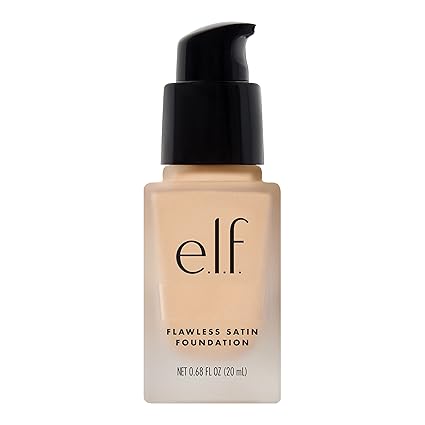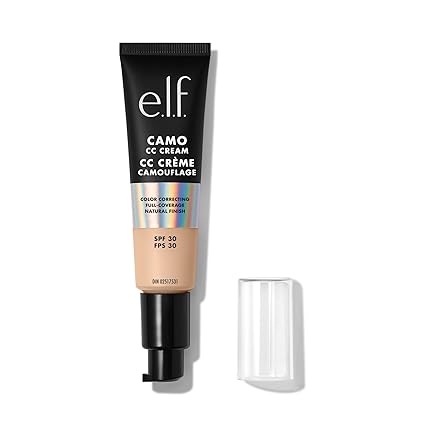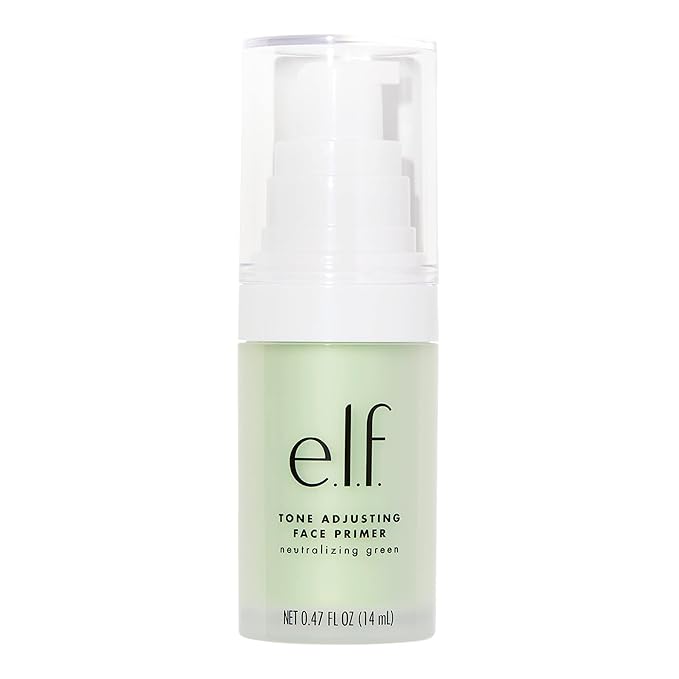Check elf top Cosmetics price
Mikayla Nogueira (@mikaylanogueira) on TikTok said that predicting the virality of her daily makeup videos is a mystery, unless there’s a touch of ELF involved. ELF, the brand that kickstarted its journey with $1 eyeshadows, holds a special place in the hearts of her 15.2 million TikTok followers. No matter the subject of the day, conversations among her followers frequently circle back to ELF. Even when discussing prestigious brands like Patrick Ta or Dior, comments like “Look at ELF fooling it” or “I’ll wait for ELF” are commonplace.
According to Mikayla, the ELF fan base and cult following are incredibly strong. The Oakland-based company has carved out a niche in the beauty industry, excelling in the art of imitation. Their success lies in producing makeup and skincare duplicates, known as dupes, that closely mimic high-end products but come at a fraction of the cost. Beauty analysts attribute ELF’s current prominence to its adept utilization of social media experimentation, efficient supply chain management, and an appeal that spans generations.

Tarang Amin, the CEO of ELF Beauty, acknowledges the respect they hold for competitors while recognizing the immense inspiration within the industry. ELF Beauty witnessed a remarkable 76% increase in net sales last quarter, and its shares skyrocketed by over 160% in 2023.
In a landscape where beauty influencers, particularly on platforms like TikTok and YouTube, have amplified their influence, companies like ELF, Essence, and NYX have flourished. This rise in visibility comes as consumers reevaluate their spending due to entrenched inflation. For instance, ELF’s Hello, Good Stuff! Glow Serum Primer, priced at $6, has emerged as a popular alternative to Glow Recipe’s $35 offering. Maybelline competes by offering a lip gloss at half the price of Urban Decay’s $27 Vice Lip Bond, while ELF provides an $8 dupe for Dior’s $40 Addict Lip Glow Oil.
Check elf top Cosmetics price
In 2004, Scott-Vincent Borba, along with his father and son Alan Shamah and Joey Shamah, founded ELF, an acronym for Eyes, Lips, Face. Their groundbreaking strategy of offering mascara, eye shadow, and lip gloss online for just $1 initially shocked the industry. Soon, ELF products became widely available in drugstores, supermarkets, Target, and Ulta. By the time equity investment firm TPG Growth acquired a majority stake in 2014, the company had already achieved $100 million in revenue. Last year, ELF’s sales reached five times that amount.
In the vast $112 billion beauty industry, encompassing skincare, cosmetics, fragrance, and hair care, ELF has not only survived but thrived, even amid softened consumer spending. According to Phil Rist, executive vice president of strategy at Prosper Insights and Analytics, the beauty sector was one of the best performers during the holiday shopping season, from Thanksgiving to Cyber Monday. Mass-market beauty product sales saw an 8 percent year-over-year increase, while prestige brands experienced a 14 percent surge, as reported by Circana.

Delphine Horvath, a professor of cosmetics and fragrance marketing at the Fashion Institute of Technology, notes the resilience of the beauty market, describing it as a highly emotional industry that remains robust amidst economic turbulence. With persistent inflation concerns, consumers are actively seeking value-for-money brands offering affordable prices.
Tarang Amin, ELF Beauty’s CEO, encountered the demands of ELF customers firsthand during a TikTok live stream last summer. In mere minutes, they inundated him with requests, particularly for a more affordable alternative to Drunk Elephant’s $38 viral bronzer drops. Disgruntled customers made it clear: they didn’t want to pay such high prices. Following the live stream, Amin promptly instructed the innovation team at ELF to create their version.
While the concept of duplicates, or “dupes,” is not new in retail, the interest in them, especially in the beauty industry, has grown significantly as consumers seek cost-saving options. According to Google search data compiled by NielsenIQ, searches for “dupe + skincare” increased by 123.5% year-over-year, and “dupe + makeup” rose by 31% over a 12-month period. This trend aligns with a broader consumer movement towards budget-friendly choices, a phenomenon seen not only in beauty but also in fashion and furniture industries with brands like H&M, Uniqlo, Ikea, and Wayfair offering affordable alternatives to high-end products.
Check elf top Cosmetics price
It’s not just about finding value; it’s also about the thrill of exploration,” remarked Tong. “Especially with ELF, trying it out can sometimes cost less than a lunch.”
In the ever-resilient beauty industry, unaffected by the looming threat of inflation, ELF has emerged as a trailblazer in leveraging this consumer trend, according to Nogueira. The brand has excelled in creating duplicates that rival products from esteemed lines like Charlotte Tilbury, Milk Makeup, Dior, Smashbox, Benefit, Laneige, Supergoop, Tarte, and Anastasia Beverly Hills.
One of ELF’s early triumphs was its mineral-infused facial primer, inspired by Smashbox’s Photo Finish, with costs of $10 compared to Smashbox’s $42. Amin explained that ELF’s Halo Glow contour, blush, and highlighter wands were developed in response to the constant unavailability of Charlotte Tilbury’s Hollywood Contour offerings.

ELF’s products stand out for being clean, vegan, cruelty-free, and produced in Fair Trade certified facilities. In some cases, Nogueira admitted a preference for ELF’s $14 version of Charlotte Tilbury’s $49 Flawless Filter.
When it comes to dupes, prestige brands surprisingly remain indifferent. Wolfmeyer, an analyst covering the beauty and wellness space, noted that these brands often consider their primary customers to be high-income buyers not necessarily seeking cheaper alternatives. Some prestige brands even view dupes positively, seeing them as drivers of innovation that bring fresh ideas to the market, contributing to their own growth.
This landscape also pushes established players to work harder to capture the attention of younger consumers. While older generations tend to stay loyal to their preferred brands, Gen Z and Gen Alpha are more open to exploring different options.
In ELF’s early days, the brand relied on customers to spread the word online, making a seamless transition to building a robust social media presence, as described by Amin. Their approach aligns with that of a digitally native brand, constantly testing, learning, and adapting based on what works and what doesn’t. ELF has been quick to embrace platforms like TikTok and BeReal, and recently announced an interactive experience on Roblox. The brand is also active on Twitch, a live streaming gaming platform, and has collaborated with a popular female gamer.
The brand truly excels in disruptive marketing, according to FIT’s Horvath, highlighting ELF’s ad campaigns featuring actress Jennifer Coolidge and product partnerships with notable brands like Chipotle, Dunkin’ Donuts, and American Eagle. These collaborations not only generate buzz but also drive engagement and brand awareness.
However, ELF’s marketing journey hasn’t been flawless. In 2019, they collaborated with marketing company Movers+Shakers for a TikTok campaign that produced a viral song, “The eyes. Lips. Confront. (elf),” by iLL Wayno featuring Holla FyeSixWun. Despite its success, this partnership faced scrutiny when it was revealed that Movers+Shakers’ co-founders were associated with NXIVM, a controversial self-help group-turned-cult. ELF chose not to comment on the matter.
Check elf top Cosmetics price
Unlike traditional brands following a sequential innovation process, ELF embraces a simultaneous approach. This allows them to create and follow trends rapidly, offering consumers a blend of novelty and desirability at an accessible price point, as noted by Manola Soler, senior director of Alvarez & Marsal’s consumer and retail group.
While many beauty brands manufacture products globally, ELF exclusively produces in China to leverage lower labor and manufacturing costs. By delivering high-volume units to these facilities, ELF can influence manufacturing processes and embed its quality control employees, a distinct advantage the company has cultivated over its 20 years of operation, according to Amin.
Investing in a robust social media presence has paid off for ELF. The brand’s organic popularity online has allowed it to save significantly on advertising costs, remarked Tong from Raymond James.
ELF Beauty, encompassing ELF’s cosmetics and skincare lines along with Well People and Alicia Keys’ Keys Soulcare, raised its outlook in November, projecting $896 million to $906 million in net sales for fiscal 2024. International sales surged by 157% in the latest quarter, largely driven by expansions in Canada and the United Kingdom. The August acquisition of skincare brand Naturium for $355 million further solidified ELF’s growth strategy.
However, the cornerstone of ELF’s success remains its affordable pricing, with the average cosmetic product priced at about $6, according to Amin. Notably, the brand has increased prices only twice, once in 2019 and again in March 2022. The unique approach of announcing price increases on social media, coupled with maintaining unchanged prices for the cheapest products, garnered consumer support and built confidence, according to Soler. “They did a good job of communicating it in a way that seemed transparent. This worked in their favor.
